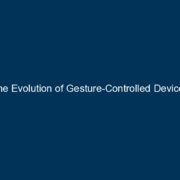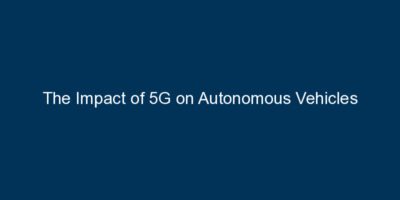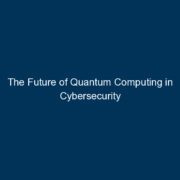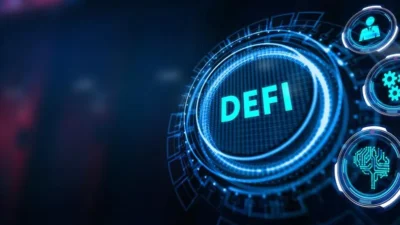The landscape of cybersecurity is undergoing a profound transformation with the advent of quantum computing. This blog delves into the potential impact of quantum computing on cybersecurity, exploring the challenges and opportunities that arise as we navigate towards a future where quantum technologies play a central role in securing digital landscapes.
Understanding Quantum Computing Basics
Quantum Bits (Qubits)
Quantum computing operates on the principles of quantum mechanics, using quantum bits or qubits as the fundamental unit of information. Unlike classical bits, which can exist in a state of 0 or 1, qubits can exist in multiple states simultaneously, thanks to the phenomena of superposition and entanglement. This unique characteristic enables quantum computers to process vast amounts of data simultaneously, making them exponentially more powerful than classical computers for certain types of calculations.
The Quantum Threat to Current Cybersecurity Protocols
Breaking Classical Encryption Algorithms
One of the key implications of quantum computing for cybersecurity is its potential to break widely used encryption algorithms. Classical encryption, which relies on mathematical problems that are difficult for classical computers to solve, can be efficiently cracked by quantum computers using algorithms like Shor’s algorithm. This poses a significant threat to the security of sensitive information transmitted over the internet.
Insecure Public Key Infrastructure
Current public-key infrastructure, which forms the basis of secure communication on the internet, relies on the difficulty of factoring large numbers for its security. Quantum computers, leveraging algorithms like Shor’s, can efficiently factor large numbers, rendering current public-key cryptography vulnerable. This necessitates the development of quantum-resistant cryptographic algorithms to secure communication in the post-quantum era.
Quantum-Safe Cryptography: A Necessity
Post-Quantum Cryptography
In anticipation of the quantum threat, the field of post-quantum cryptography is rapidly evolving. Researchers are working on developing cryptographic algorithms that remain secure even in the presence of powerful quantum computers. These quantum-resistant algorithms are designed to withstand attacks from both classical and quantum computers, ensuring the long-term security of digital communication.
Quantum Key Distribution (QKD) for Secure Communication
Unbreakable Quantum Communication
Quantum Key Distribution (QKD) is an innovative solution that leverages the principles of quantum mechanics to enable secure communication. QKD uses the quantum properties of entanglement to create a shared secret key between two parties. Any attempt to intercept this key introduces detectable changes, alerting the parties to potential eavesdropping. QKD promises unbreakable encryption, providing a secure foundation for communication in the quantum era.
Quantum Computing as a Tool for Cybersecurity
Enhanced Cryptanalysis for Security Testing
While quantum computing poses challenges to classical cryptographic algorithms, it can also be utilized as a tool for enhancing cybersecurity. Quantum computers can be employed for cryptanalysis to test the security of cryptographic protocols. This proactive approach enables cybersecurity experts to identify and address vulnerabilities before quantum adversaries can exploit them.
Optimization of Machine Learning in Security
Quantum computing’s ability to process vast datasets and perform complex calculations opens new avenues for optimizing machine learning algorithms in cybersecurity. Quantum machine learning can enhance anomaly detection, threat prediction, and pattern recognition, empowering cybersecurity systems to adapt and respond rapidly to evolving threats.
Challenges in the Integration of Quantum Computing in Cybersecurity
Technological Maturity
Quantum computing is still in its early stages of development, and large-scale, fault-tolerant quantum computers are not yet readily available. The integration of quantum technologies into mainstream cybersecurity practices depends on the technological maturity of quantum computing platforms.
Cost and Accessibility
Building and maintaining quantum computers involve substantial costs, limiting the accessibility of this technology. As quantum computing becomes more prevalent, addressing cost barriers and ensuring widespread access will be essential for its integration into cybersecurity frameworks.
The Future Landscape of Quantum Computing in Cybersecurity
Quantum-Secure Communication Infrastructures
The future of quantum computing in cybersecurity envisions the establishment of quantum-secure communication infrastructures. As quantum-resistant cryptographic algorithms and QKD technologies mature, secure communication channels resistant to both classical and quantum attacks will become a standard in digital communication.
Evolution of Quantum-Safe Cybersecurity Standards
Global efforts are underway to define and standardize quantum-safe cryptographic algorithms. Organizations and governments are collaborating to establish standards that ensure the integrity and security of digital communication in the era of quantum computing. Adhering to these standards will be crucial for maintaining the cybersecurity posture of institutions and individuals.
Conclusion
In conclusion, the future of quantum computing in cybersecurity brings both challenges and opportunities. While quantum computers pose a threat to current cryptographic protocols, ongoing research in post-quantum cryptography and the development of quantum-resistant algorithms promise a secure future. Quantum technologies also offer tools to enhance cybersecurity, from optimizing machine learning algorithms to providing advanced capabilities in cryptanalysis.
As the field of quantum computing advances, the integration of quantum-safe cybersecurity measures will be paramount to maintaining the confidentiality and integrity of digital information. The collaboration between quantum scientists, cryptographers, and cybersecurity experts will shape a future where quantum technologies are harnessed to create a robust and secure digital environment.




















Comments